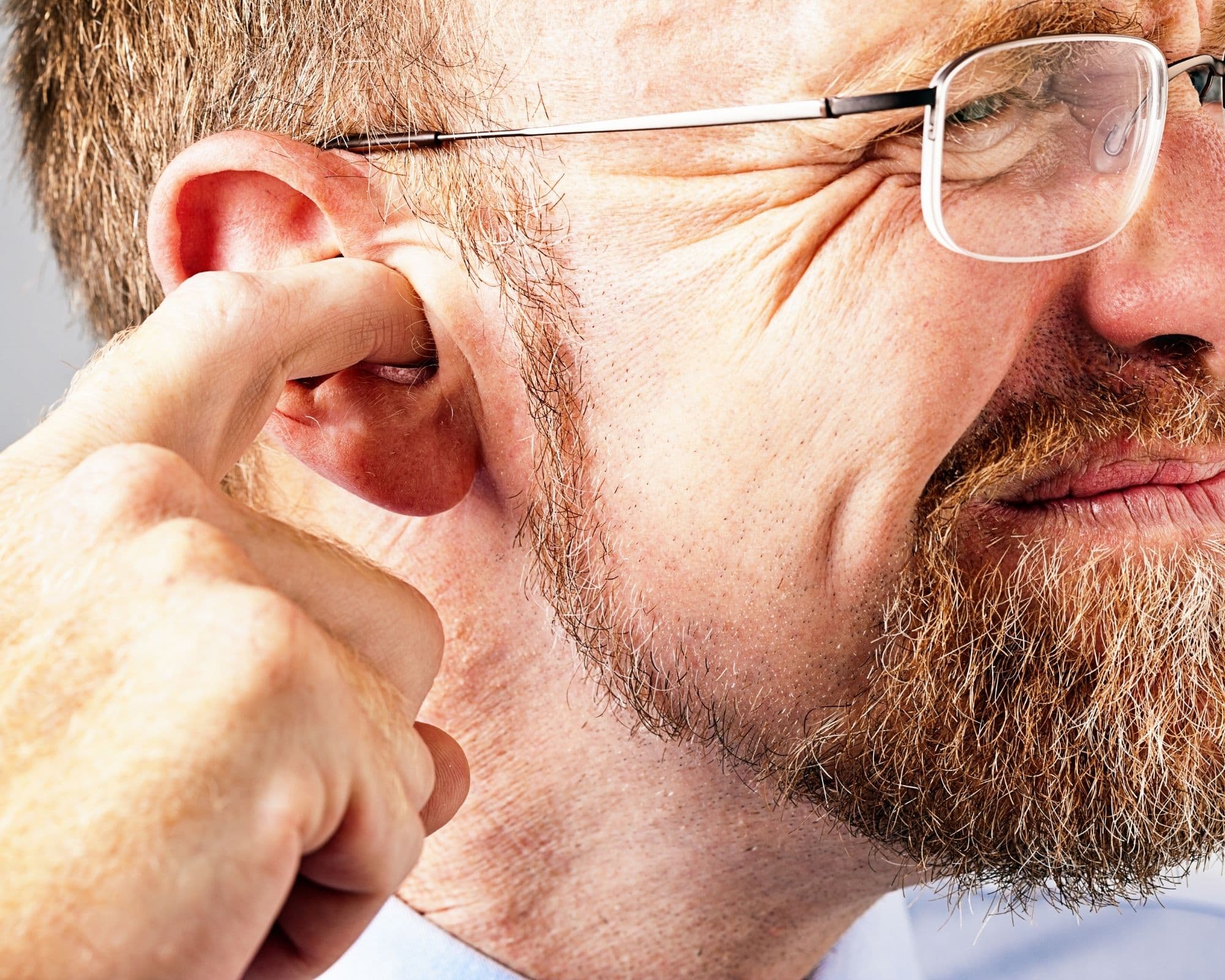Do you sometimes feel that the world is spinning around, and you’re off-balance even while being still? Well, you might have vertigo. Vertigo makes it feel as though the world is whirling around you or that you are spinning. It is not ordinary dizziness like you may usually experience. The intensity level is increased.
Vertigo is not a disease. Instead, it’s a symptom of another condition. You may experience tinnitus with vertigo.
Hearing sounds that originate inside your body rather than from an external source is known as tinnitus. Tinnitus is often described as “ringing in the ear,” but you can hear various sounds like; buzzing, humming, grinding, hissing, and whistling.
Also, you might notice that your hearing isn’t quite as sharp as it used to be, or that background noise takes over when you are trying to listen to something. These are all signs of tinnitus, which accompanies hearing loss.
At El Dorado Hearing we take these issues seriously and want to help you understand what’s happening with your symptoms of vertigo and tinnitus. Let’s look at how tinnitus and vertigo go hand in hand to identify if you are experiencing them and how we can help.
Vertigo and Tinnitus’ similarity
Both vertigo and tinnitus are signs of inner-ear difficulties, brain disorders, or problems with nerve pathways. Because of this, they are frequently related to one another. Sometimes treating tinnitus addresses vertigo problems.
Not everyone who suffers from tinnitus also suffers from vertigo but these two do occur together quite often. For those dealing with Meniere’s disease, both vertigo and tinnitus will come into play.
Vertigo and Tinnitus’ Difference
Tinnitus is an indication that there are issues with the auditory system and not a recognized medical illness or, typically, another underlying medical condition. While, the balance affecting condition known as vertigo frequently results in disorientation and has many causes.
Meniere’s Disease
Meniere’s disease typically only affects one ear. Vertigo and hearing loss are side effects of Meniere’s disease. Ménière’s disease is a condition of the inner ear that causes sudden attacks of feeling like the room is spinning around you or vertigo, a ringing noise inside the ear or tinnitus, pressure felt deep inside the ear, and hearing loss.
Meniere’s illness can strike at any age, but it typically manifests between the ages of 20 and 40. Although it’s a chronic ailment, several therapies can assist manage the symptoms and lessen the long-term effects on your life.
Symptoms of Meniere’s Disease
When Meniere’s disease is acting up, you might feel:
- dizzy with a spinning sensation
- unsteady on your feet
- nausea and vomiting
- ringing in the ear
- roaring or buzzing inside your ear
- a sudden drop in hearing
Often these symptoms persist between two to three hours and occur all at once. The disease typically begins in one ear, but it can eventually spread to the other.
The symptoms may not go away entirely for a day or two. After an attack, you may feel worn out. The signs and symptoms differ from person to person, although a hearing loss attack without vertigo is unusual. Attacks may repeatedly occur for several weeks, months, or even years. See your physician or hearing loss professional immediately if you have symptoms of Ménière’s disease, such as vertigo and loss of hearing.
Causes of Meniere’s Disease
Meniere’s disease has no recognized causes. It usually starts in younger people under 40. Meniere’s disease symptoms seem to be brought on by a family history of Menire’s disease and a chemical imbalance in the fluid of your inner ear.
What to do if You Suspect Meniere’s Disease
Meniere’s Disease can usually make you lose your balance if it attacks. So the first thing you need to do is: Take the vertigo medicine or any medicine that was advised by your GP, sit or lie down and close your eyes, do not turn your head quickly; instead, move slowly and carefully. Try to move around when the attack is done to assist your eyesight and other senses to compensate for the issues in your inner ear.
Treatments for Meniere’s Disease
Although there is no cure, some symptoms can be managed with treatments. Meniere’s is usually coupled with stress and anxiety. People with this disease are advised to change their lifestyle to help manage stress and anxiety. Yoga, meditation, tai chi, or mindfulness may all help people unwind and destress.
Additionally, eating a low-sodium diet and avoiding alcohol, caffeine, and smoking benefit those with Meniere’s disease. These treatments will also aid in providing some relief from vertigo and tinnitus. Motion sickness pills, nausea medications, and diuretics can also be prescribed to help alleviate some of these symptoms.
If you are experiencing any of these symptoms, it’s best to seek the care of a medical or hearing professional. Call to arrange a consultation with one of our hearing specialists at El Dorado Hearing.
Your hearing and quality of life are important, and we’d like to help you maximize both!




Leave a Reply